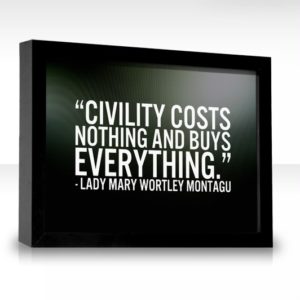
Same slogan, different valuable proposition.
Florida Trend may be the best statewide business publication around.
I’ve been reading it since I moved here in 1987. The magazine is essential if you want to learn what’s going on in the Sunshine State.
Florida Trend recently celebrated its 65th birthday with a blockbuster issue that was chock full of cool stuff.
Perhaps the most interesting was a look at 1958 when the St. Petersburg based magazine made its debut.
Florida Trend’s editors offered some stats comparing 1958 to today.
Here are a few stunners:
- In 1958, Florida was the 10th most populous state. It’s third today.
- The population grew nearly 400 percent from 4.5 million people to a whopping 22.3 million in 2022.
- Population density grew from 84.2 per square mile to 415. More than a quarter of the state’s population (28 percent) lives in South Florida.
- The state’s economic output grew from $14 billion to $1.4 trillion.
- In 1960, the median home price was $11,800 which adjusted for inflation is $122,174 today.
- Average rent in 1960: $71 which is $669 in 2022 dollars.
- In 2023, the average rent is $2,448 in the three largest metro markets.
Yikes.
In 1971, when Disney’s Magic Kingdom opened on October 1 admission was $3.50 for adults and $1 for children.
It’s a lot more today.
In fact, I hear it’s more efficient to drive to the Magic Kingdom, park, and throw your life savings over the wall. Sigh.
Yes, there have been a lot of changes.
And so, you can’t help but wonder what the next 65 years will hold.
What will climate change and sea level rise mean for our state?
How high can home prices go? What will rising prices mean for our demographics and our society if the middle class is priced out of Florida? (Maybe they already have been?)
How high can insurance rates soar before we cry uncle? The Wall Street Journal had a stunning story last week about insurance rates in an historic neighborhood in West Palm Beach. One home was quoted $120,000 for an insurance policy—that is not a typo. Modest homes are seeing prices ranging from $10,000 to $40,000 a year. Something has got to give: without being political perhaps we ought to worry less about banning books in Florida and more about how to do something about homeowner’s insurance.
We were told that reforms to reduce lawsuits would lower costs, now we are being told that rates are unlikely to fall. Rising reinsurance costs, inflation and the effects of climate change are keeping prices sky high.
Ugh.
There are other vexing issues that nobody could have predicted 65 years ago.
For instance, will we ever figure out how to navigate our ever-polarized politics?
It’s hard to predict, but it’s fun to speculate.
One thing is certain: change. Change, like death and taxes, is inevitable.
We didn’t see a worldwide pandemic coming and the amazing changes left in Covid’s wake.
Who could have predicted that remote or hybrid work schedules would remake cities? And doesn’t it seem like the impacts of climate change are coming faster than we thought? Or is it that we just keep ignoring the science?
Regardless, it’s fun to look back and fun to look forward. It’s also imperative that we enjoy today and try our best to impact tomorrow.
One thing is for sure, when I moved here 36 years ago I and 1,000 newcomers a day saw Florida as an affordable paradise. That is no longer the case.
Odds and Ends

A shout out to the great Nancy Chanin on her nomination as “Woman Volunteer of the Year” for her work with the equally terrific EJS Project in Delray Beach.
The award is offered by the Junior League of Boca Raton and the winner will be announced at the 36th Annual Woman Volunteer of the Year luncheon Nov. 10 at The Boca Raton.
The list of nominees is impressive. But Nancy is so deserving. She’s kind, hardworking, and does so much for so many. Soo glad she’s up for this honor.
Happy Retirement D
I was under the weather last week and missed retirement ceremonies for my friend Delores Rangel. It broke my heart because I adore Delores and her family and I really wanted to be there and celebrate.
Delores served with distinction as the Senior Administrative Executive Assistant to the Mayor and City Commission for a long, long time. That’s a fancy title. I kept it simple. I thought of her as my boss. You put D in charge and she made sure you were OK.
Delores kept your schedule, manned the phones, took the messages, made sure you were where you needed to be and generally took care of everything a busy elected official could ever need. And she did it well, with a smile, a sense of calm in the midst of chaos and a sense of humor that was needed and appreciated.
I sent Delores a message and I was told that the City Manager read it at the ceremony. I’m glad. Here’s a brief summary of what I sent.
“You made my time on the Commission and as mayor so enjoyable. You always had my back and kept me organized during some very interesting times (hurricanes, the Jerrod Miller shooting, and all those late night meetings dealing with the controversies of the day).
It breaks my heart that I can’t say this in person. But please know you were amazing to work with, always supportive, organized and level headed. It was so appreciated. I know David Schmidt and other mayors and commissioners felt the same way.
I’m so glad that I got to know your family. They are wonderful.
I hope you have many years of happiness and health ahead of you.
You’ve done so much for our city. Those of us who know, know. Thank you my friend for everything. With love and appreciation, Jeff & Diane.”



